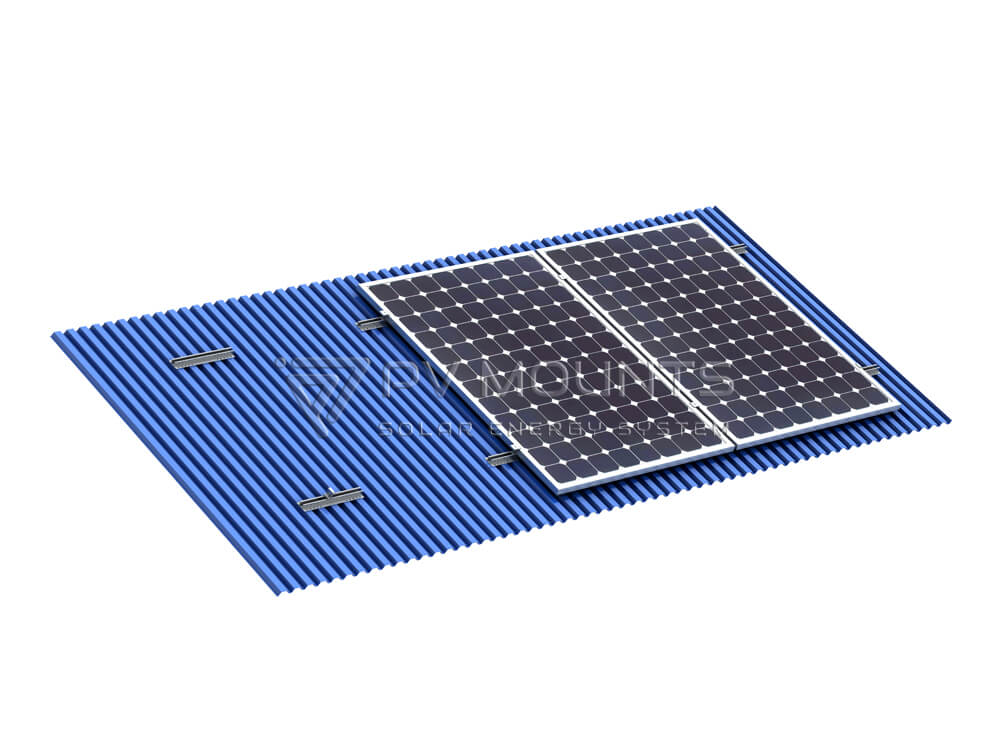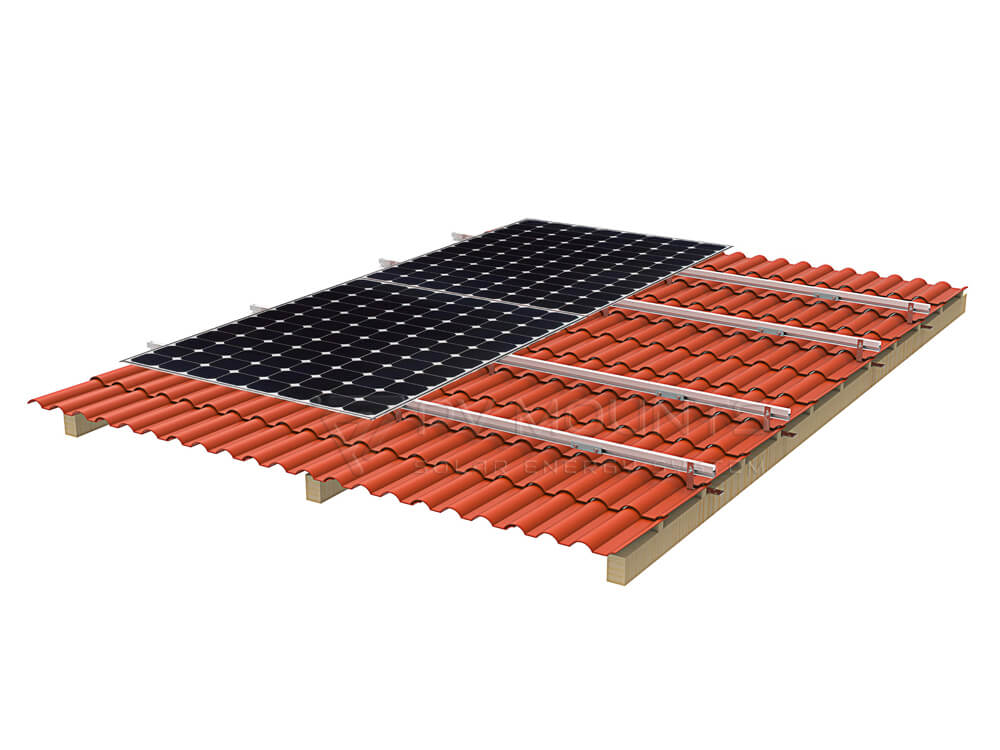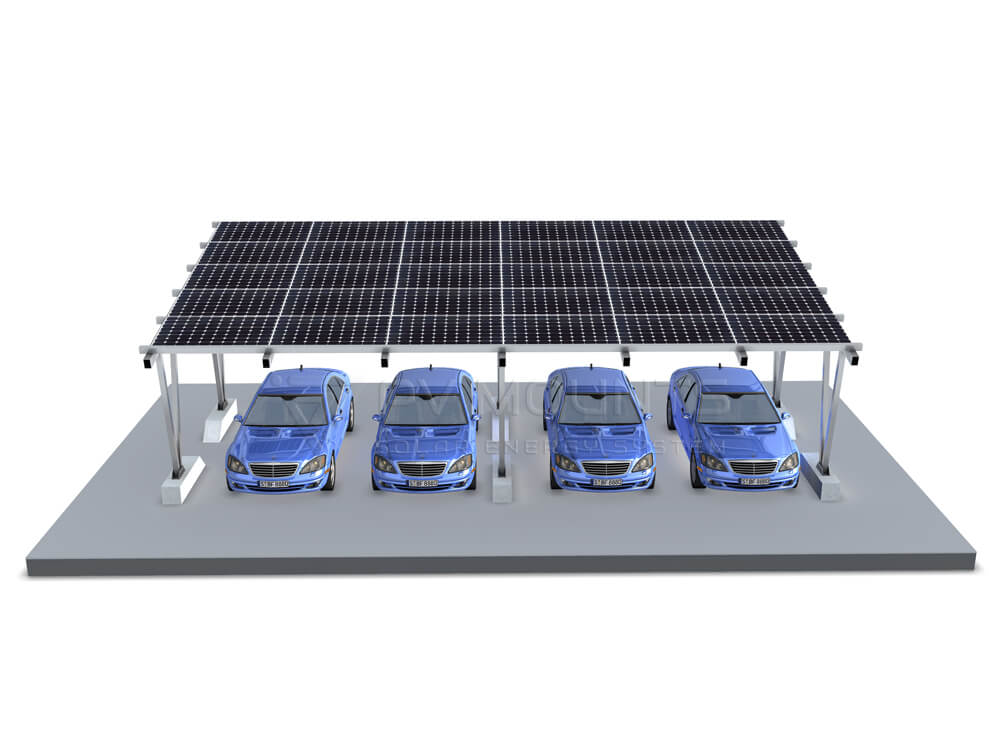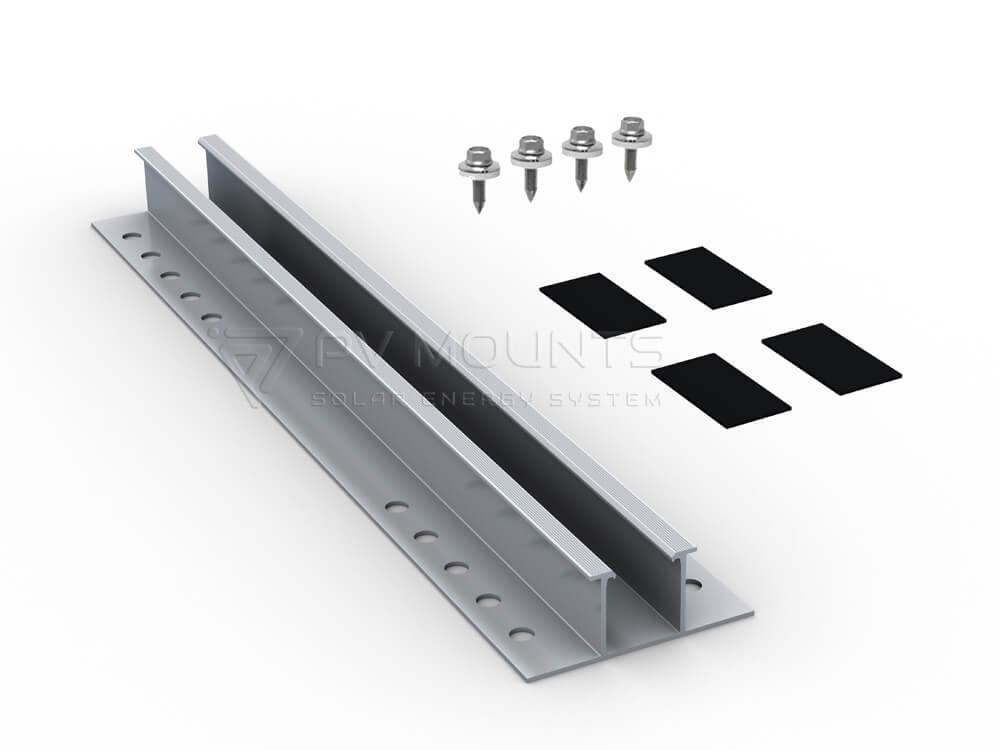Sistem de montare solară la sol de la PV-MOUNTS
PV Mounts - Producătorul dvs. profesionist de sisteme de montare solară la sol cu soluții
PV Mounts Solar Mounting System combină șinele noastre din aluminiu și oțel cu componente sau tuburi mecanice, pentru a crea o structură eficientă din punct de vedere al costurilor, capabilă să facă față oricărei provocări legate de site sau teren.
Instalarea este simplă, cu doar câteva componente structurale și fără a fi nevoie de găurire, sudură sau utilaje grele. În plus, sistemul funcționează cu o varietate de opțiuni de fundație, inclusiv piloni de beton și șuruburi de pământ.

Beneficii de la suporturile PV Soluții Soloar
Design inovator al șinei
Prezentăm modele unice de șine, create exclusiv pentru a îmbina utilitatea și eleganța.
Certificate suficiente
Fabricat strict în conformitate cu certifcate industriale: AS/NZS 1170.2-2002, JISC8955:2017, Euro Code 8, DIN 1055, IBC 2009, MCS012, UL2703, SGS etc.
Managementul calității
Sistemul nostru de management al calității asigură excelența constantă în livrarea produselor, urmând standarde riguroase precum sistemul de calitate ISO9001.
Asigurarea garanției
Oferim produsului garanții de 10 ani, asigurându-vă de încrederea noastră în calitatea și durabilitatea componentelor noastre de montare solară la sol.
Echipă de vânzări sofisticată
10 ani de experiență în producția de extrudate din aluminiu și 6 ani de vânzări internaționale pentru sistemul de montaj solar.
Durată de viață lungă
Proiectat pentru durabilitate, promite o durată de viață lungă de până la 25 de ani și o producție consistentă de energie solară.
Diferite tipuri de Mutații solare la sol de la monturi fotovoltaice
Suporturile PV oferă diferite tipuri de sisteme de montaj cu componente specifice pentru diferite ocazii de instalare.

Sistem standard de montare solară la sol - fundație cu șurub
Acordăm prioritate preasamblării înainte de expediere, utilizând planificarea din fabrică și prelucrarea de precizie pentru a evita sudarea și tăierea la fața locului. Această abordare vă economisește timp și costuri de instalare.
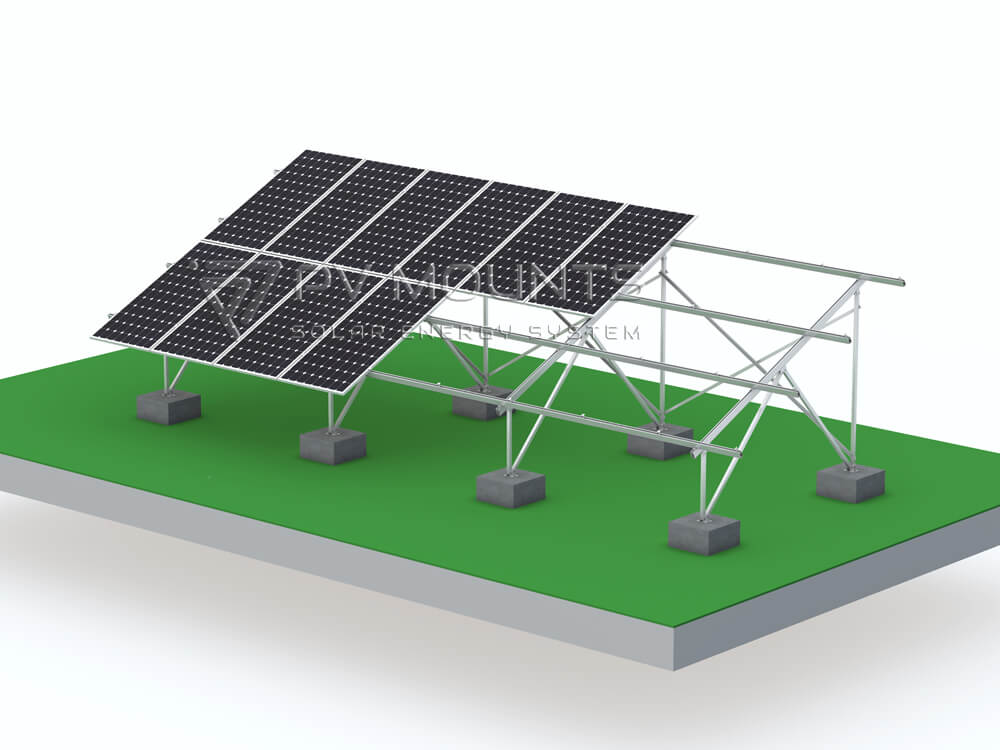
Sistem standard de montaj solar la sol - fundație din beton
Fundația din beton este o soluție de montare economică și utilizată pe scară largă în sistemul de rafturi la sol. Optimizate pentru o instalare ușoară, rapidă și eficientă, fără lucrări ample de pregătire.
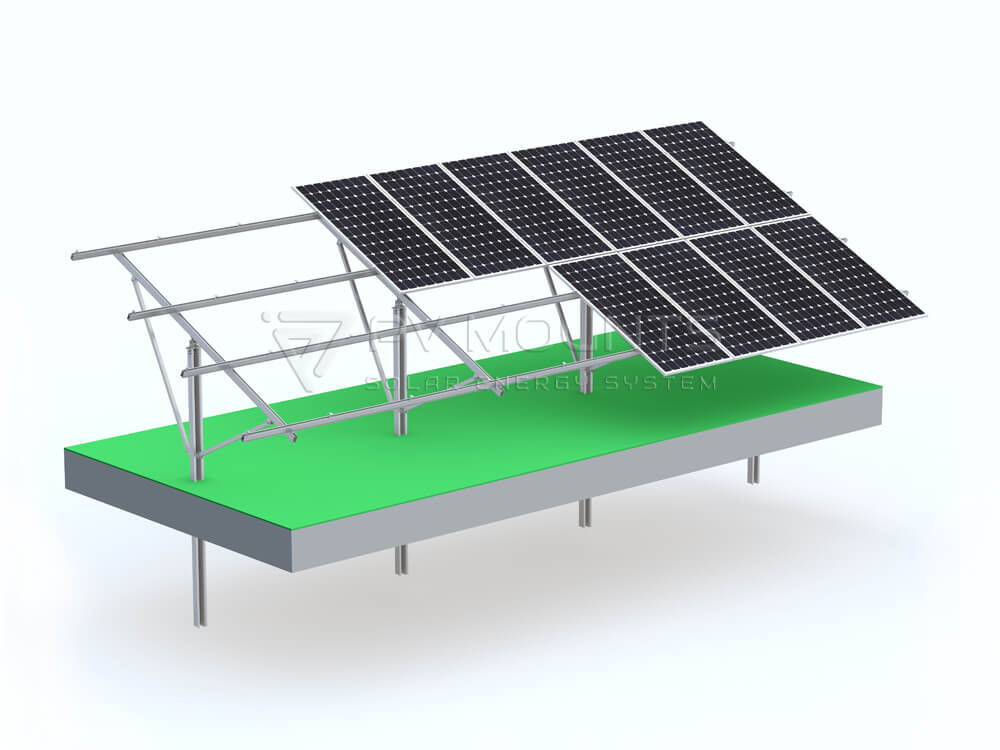
U Pile Sistem de montare solară la sol
Folosind fundații pe piloți și optimizarea specifică proiectului, sistemul nostru este ideal pentru instalațiile fotovoltaice în aer liber pe scară largă.
Componente standard de sol solar Mouting
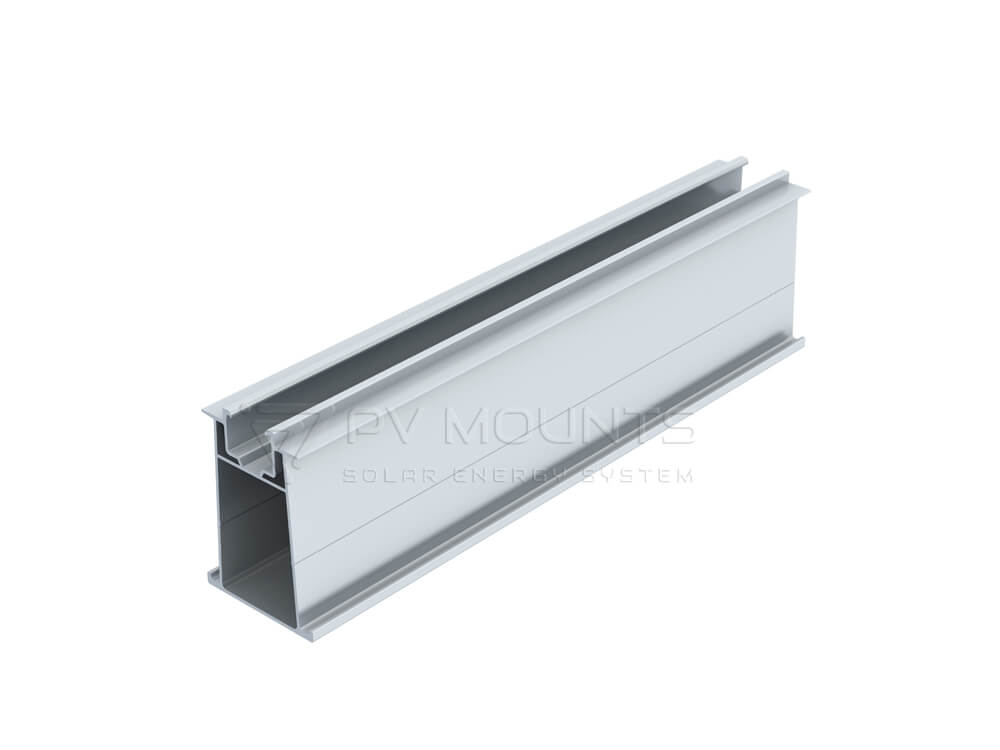
Feroviar
PVM-GS-01
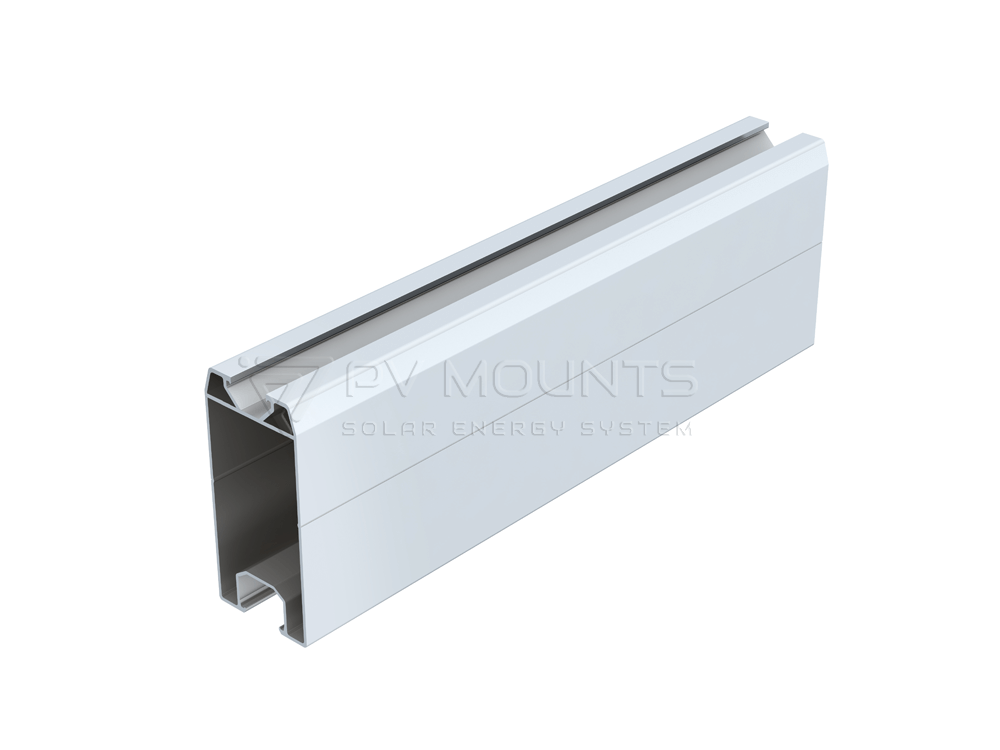
Baza
PVM-GS-02

Suport pentru stâlp
PVM-GS-03
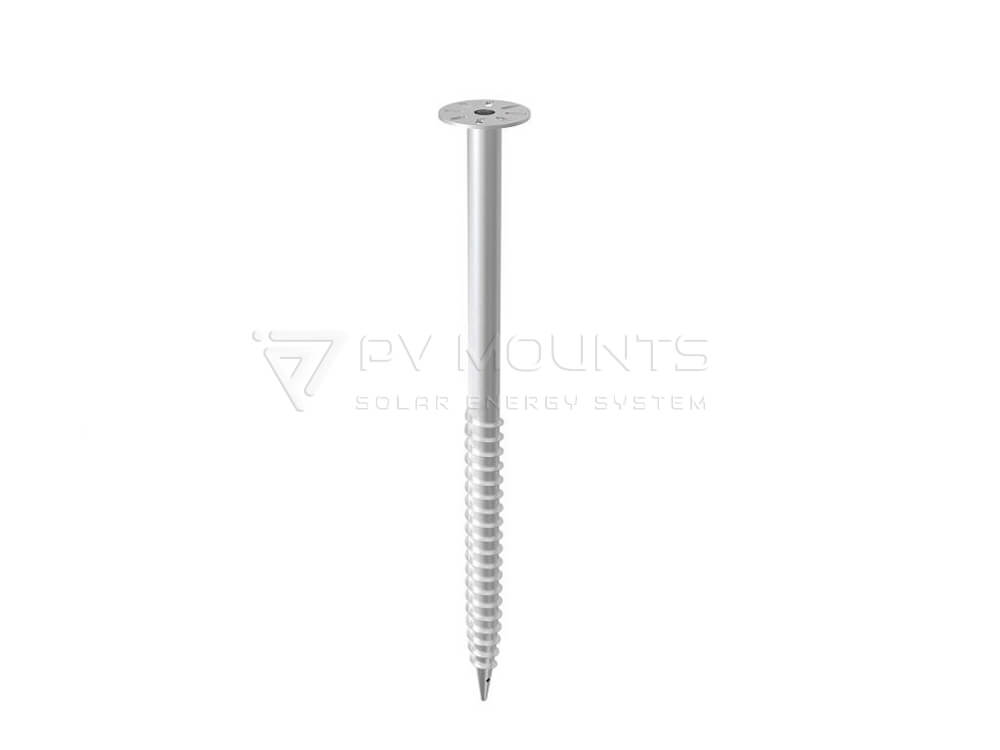
Șurub de împământare
PVM-GS-04
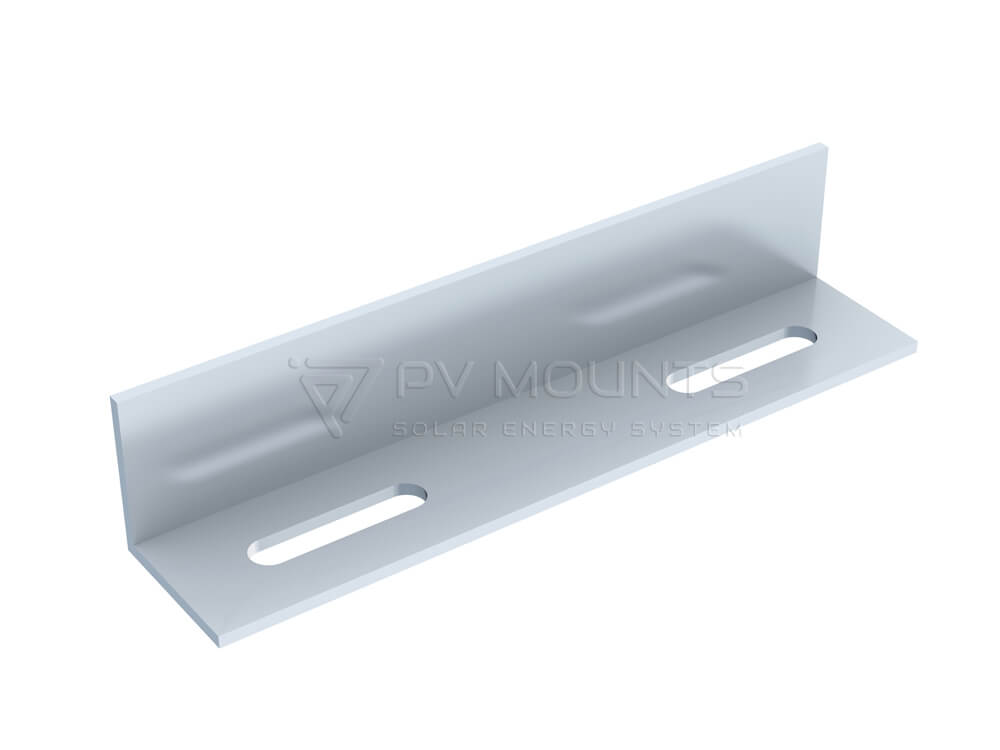
Cruce înclinată
PVM-GS-05

Baza
PVM-GS-06

Clemă de susținere
PVM-GS-08
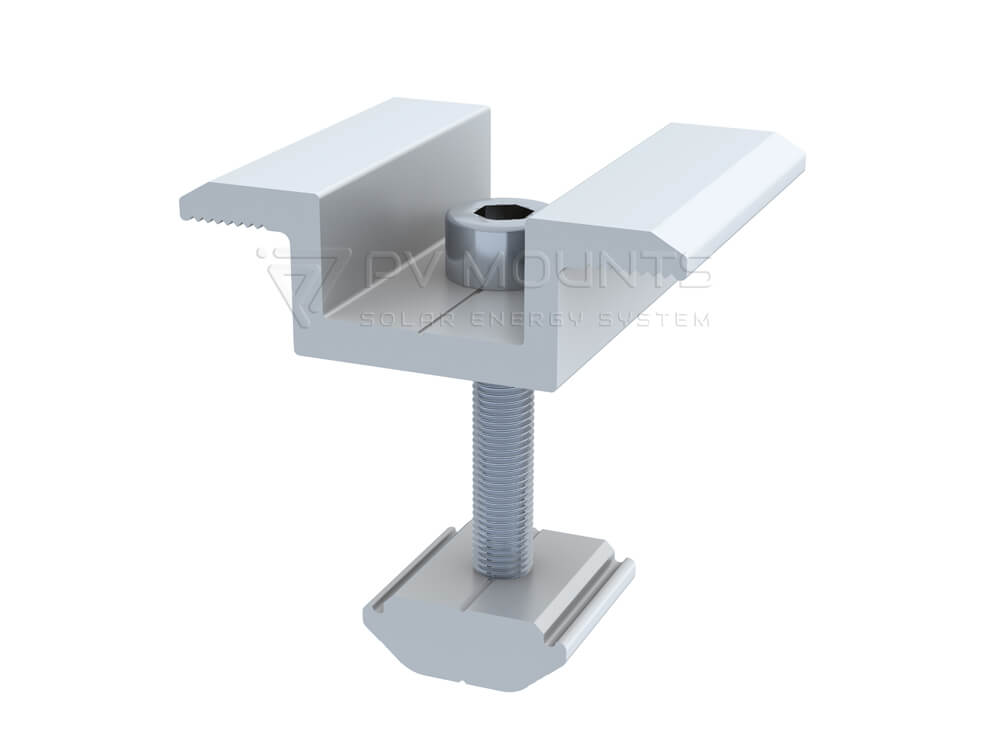
Clemă mediană
PVM-MC-B
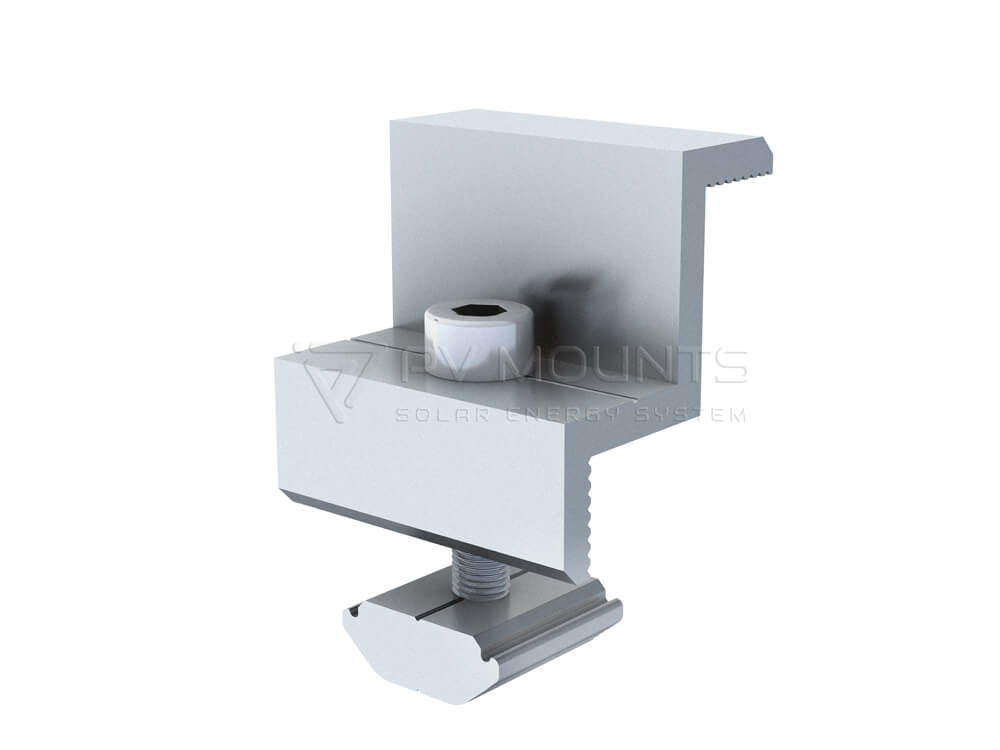
Clemă de capăt
PVM-EC-B

Preinstalare tip N
PVM-NP

W Tip preinstalare
PVM-WP
U Pile Ground Solar Mouting Componente
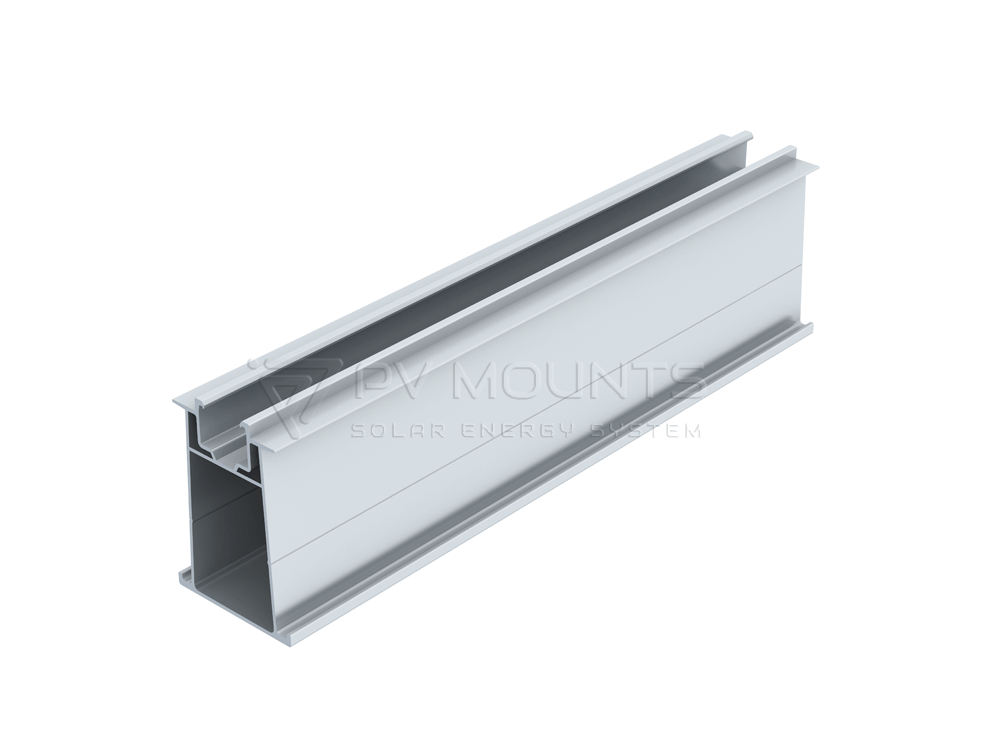
Feroviar
PVM-GS-01
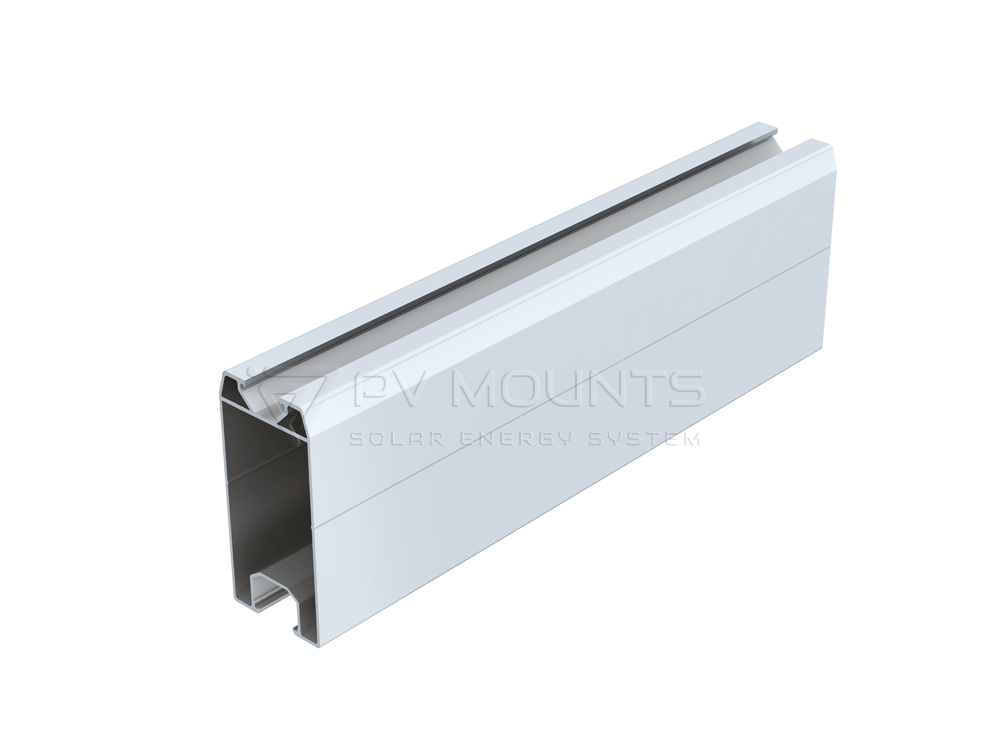
Feroviar
PVM-GS-02

Suport pentru stâlp
PVM-GS-03

Suport pentru stâlp
PVM-GC

Clemă mediană
PVM-MC-B

Clemă de capăt
PVM-EC-B

H -Clamp
PVM-GS-04

Coloană de piloți U Pre-asamblată
PVM-UP-01
Videoclipuri ale componentelor
Producția de șuruburi de sol pentru sisteme solare montate la sol
Șină unică pentru sistemul de montare a panourilor solare
Test general de compresie a șinei în laboratorul SGS -Sistem de montare solară
Specificații tehnice
| Articolul nr: | PVM-SGR |
| Port de livrare: | Xiamen |
| Sarcina vântului: | Max 60m/s |
| Sarcina de zăpadă: | Max 1.4KN/m |
| Modul fotovoltaic: | Încadrate, neîncadrate |
| Orientarea modulului: | Peisaj sau portret |
| Structuri de fixare: | Oțel inoxidabil 304 |
| Material: | 100% Anodizat AL6005-T5; Oțel inoxidabil SUS304; Q235 |
| Garanție: | 10 ANI |
| Durata de viață: | 25 DE ANI |
| Terminat: | Anodizat AL 6005-T5; Galvanizat la cald Q235 |
| Standard: | JISC8955-2017 Linii directoare pentru proiectarea structurii rețelelor fotovoltaice |
| Culoare: | Anodizare naturală sau neagră |
| Cerere: | Sol, teren deschis sau acoperiș plat din beton |
Cum fabricăm sistemul Ground Solar Mouting
Facem tot posibilul să ne asigurăm că fiecare detaliu de producție este excelent, de la material, exturion, anodizare, inspeciton, pachet și încărcare. Noi credem că calitatea depinde de detalii!
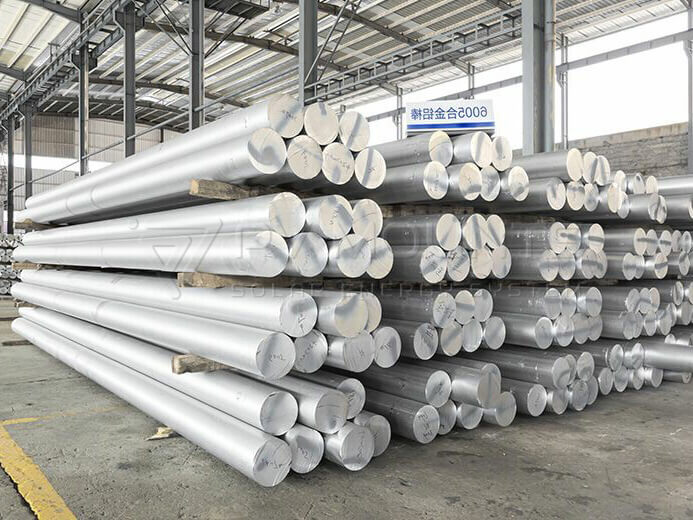
Aluminlum Pod
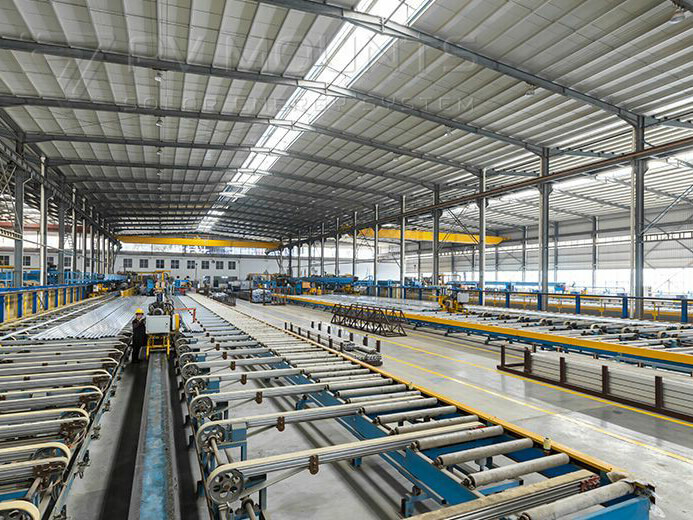
Aluminiu Extrusion Line
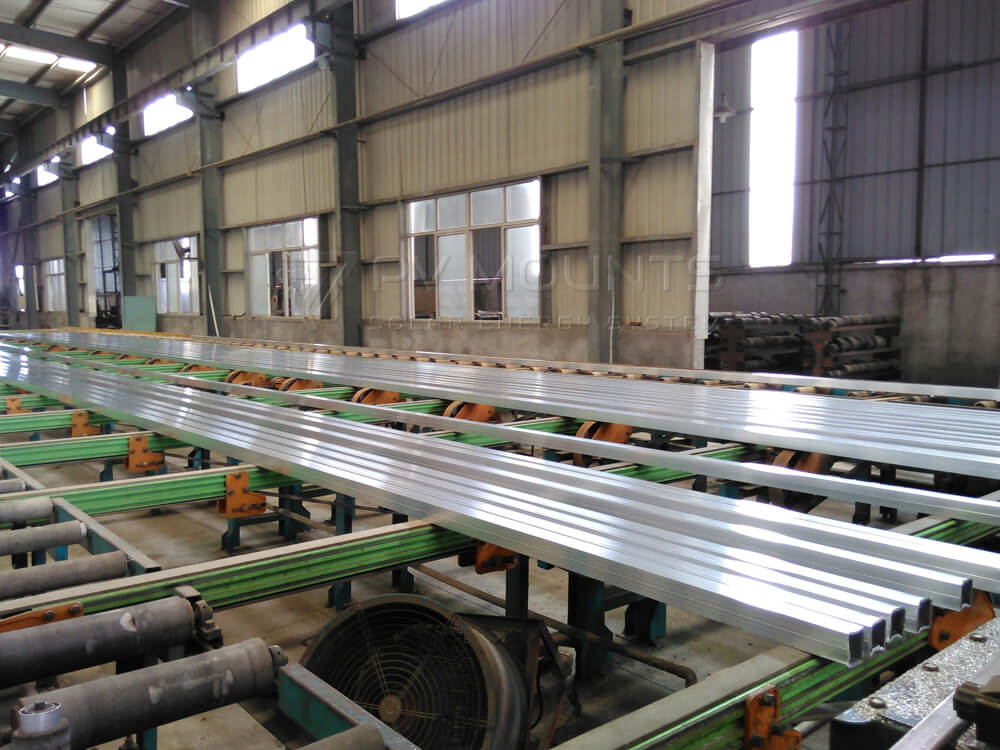
Producția feroviară
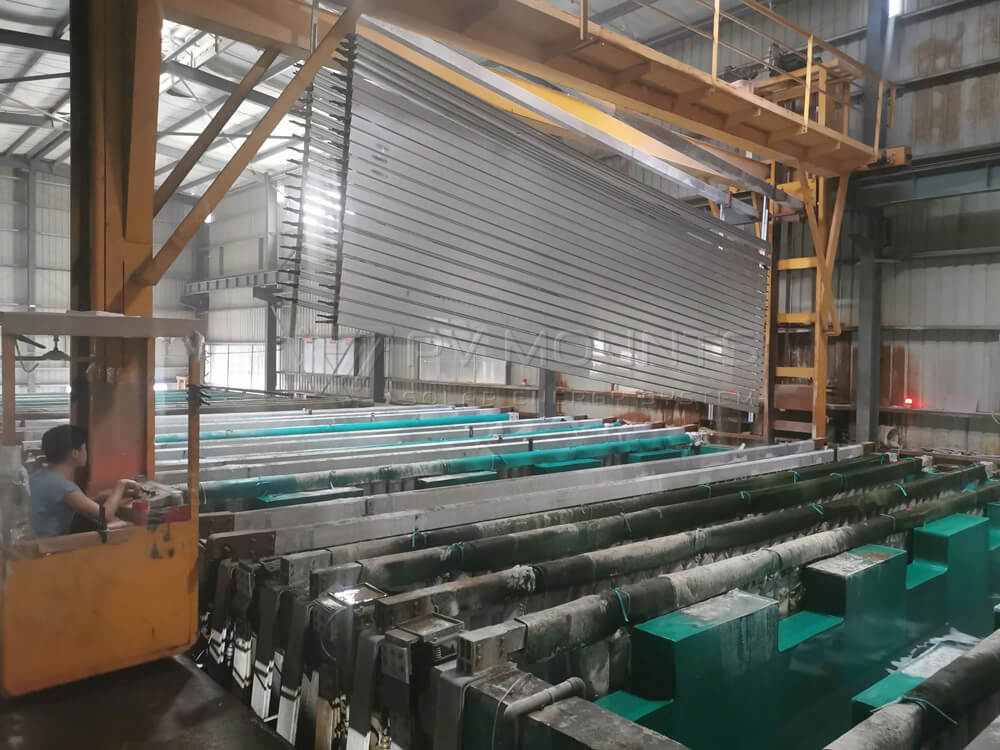
Procesarea anodizării
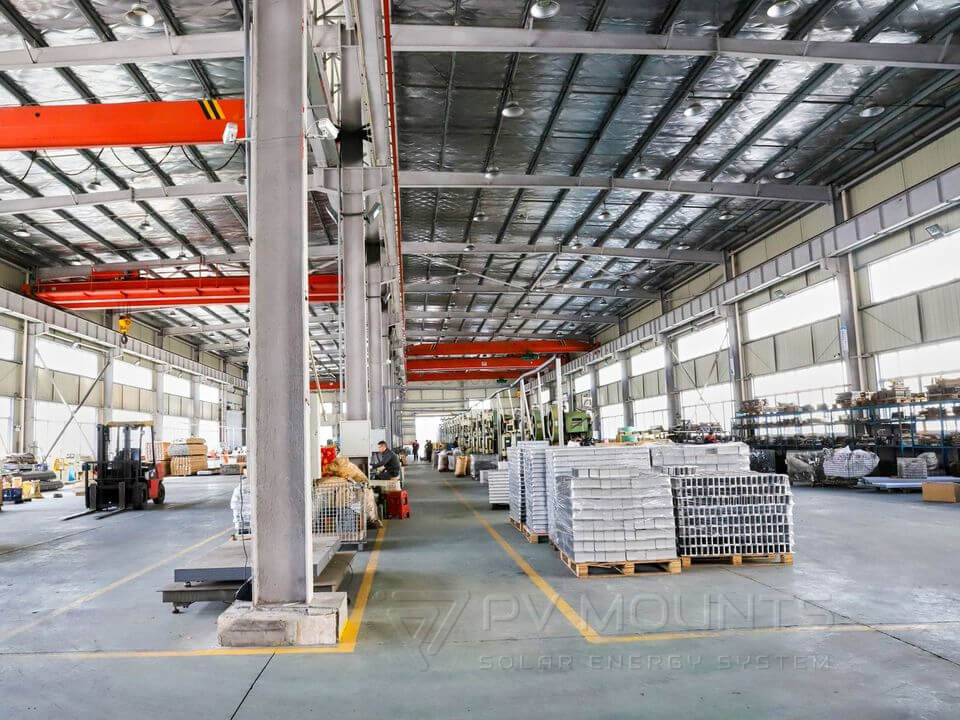
Fabrică
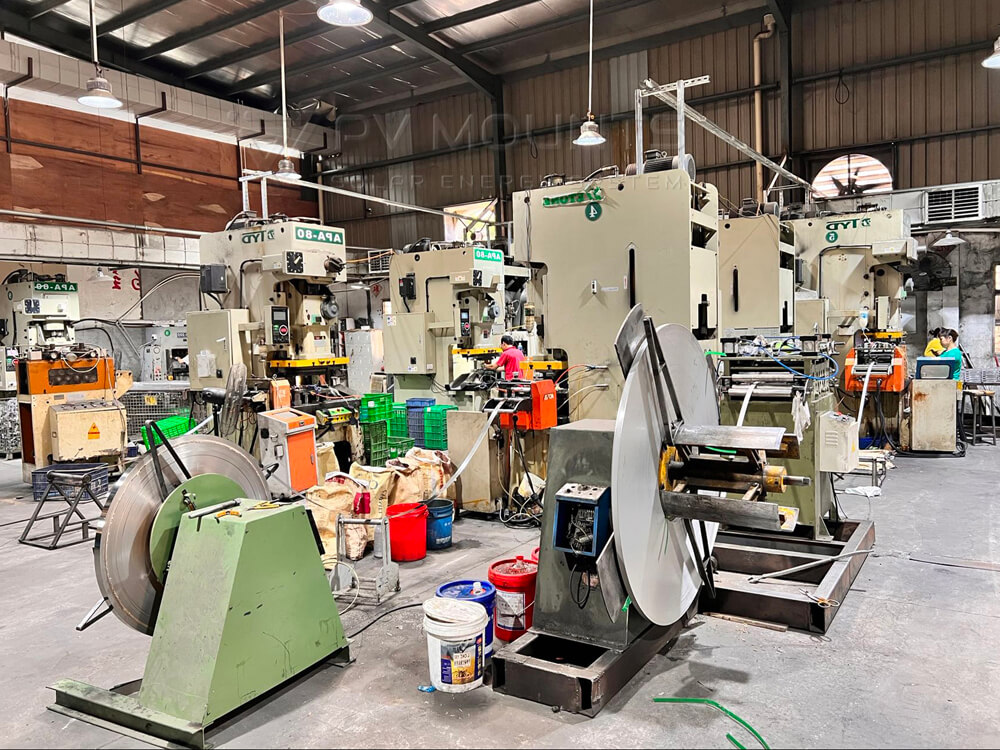
Mașină de tăiat
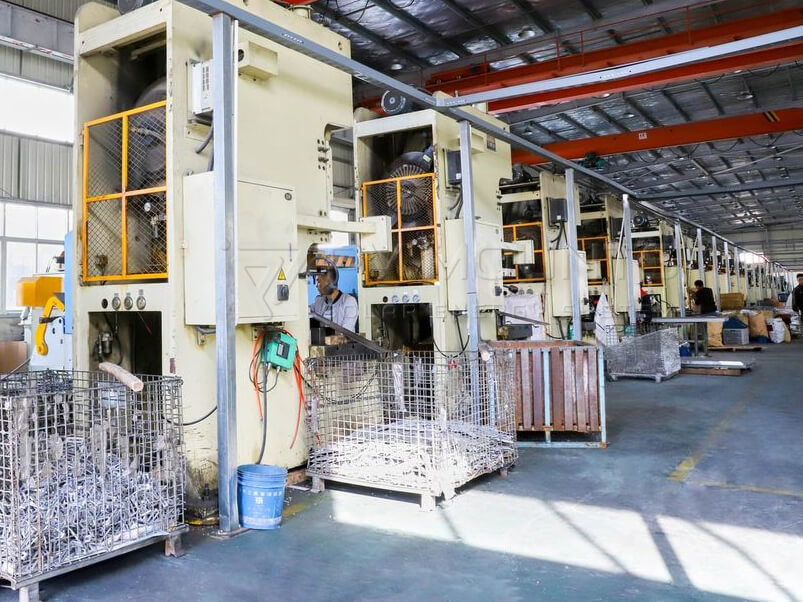
Mașină
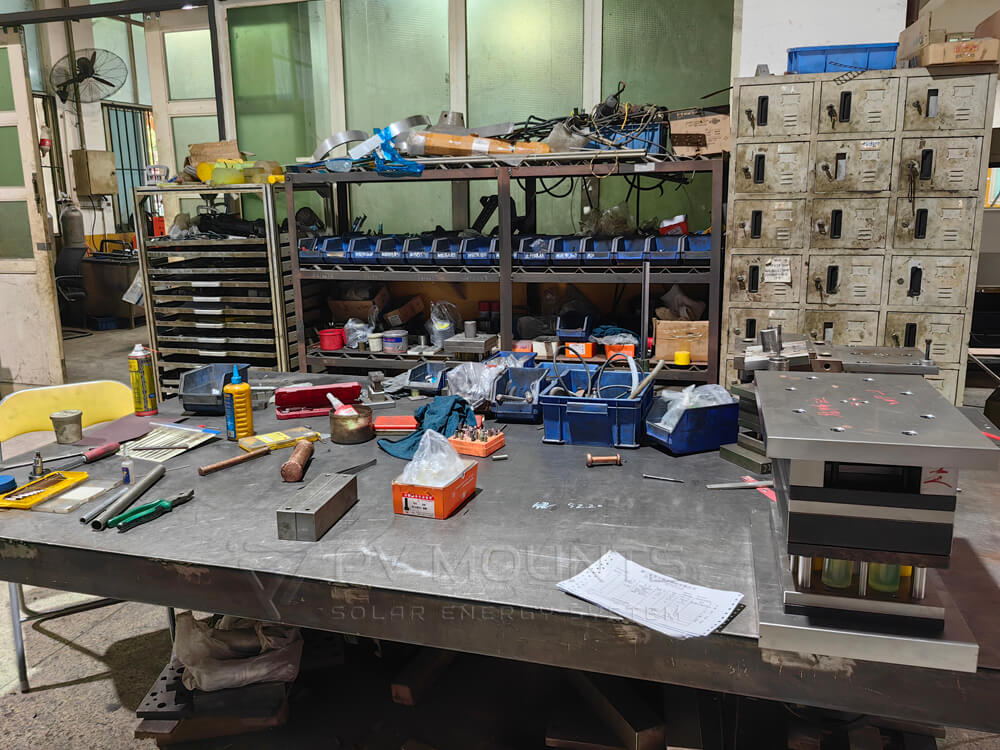
Atelier de matrițe
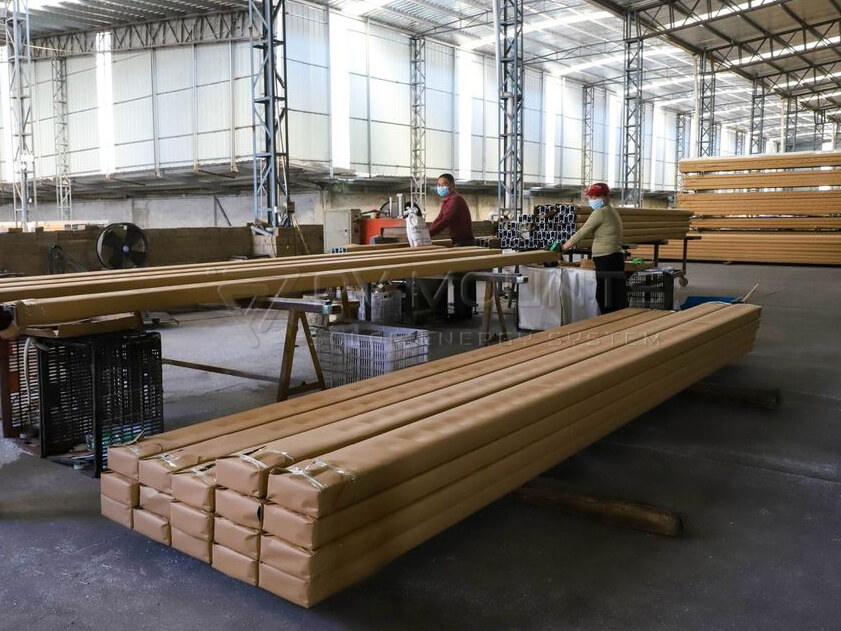
Depozit
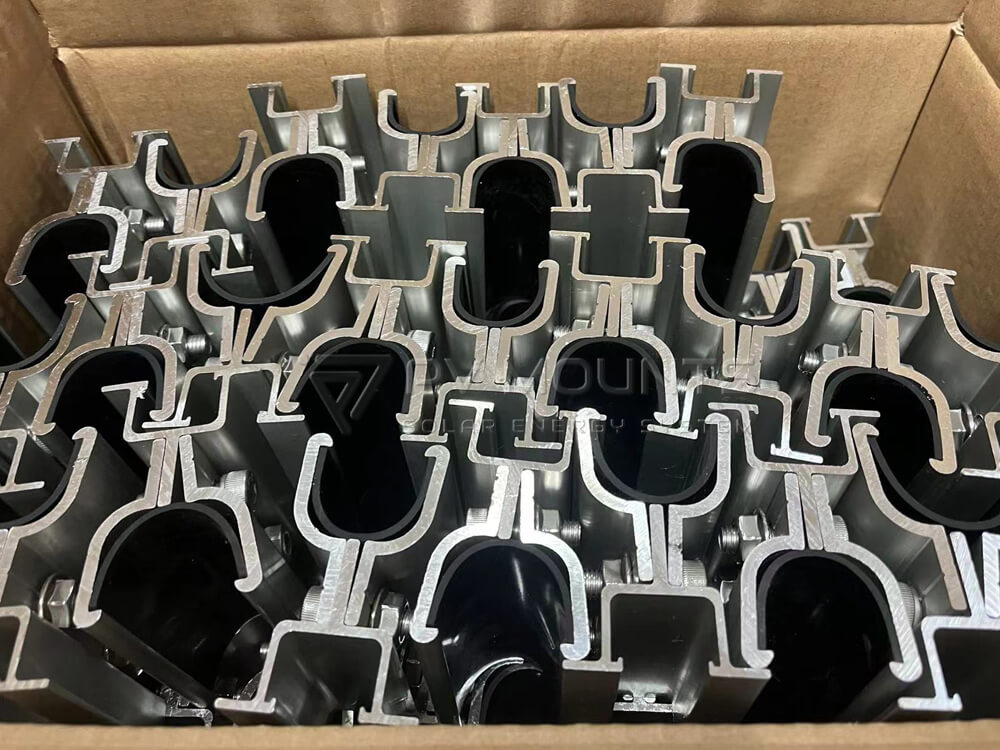
Intergrat cauciuc
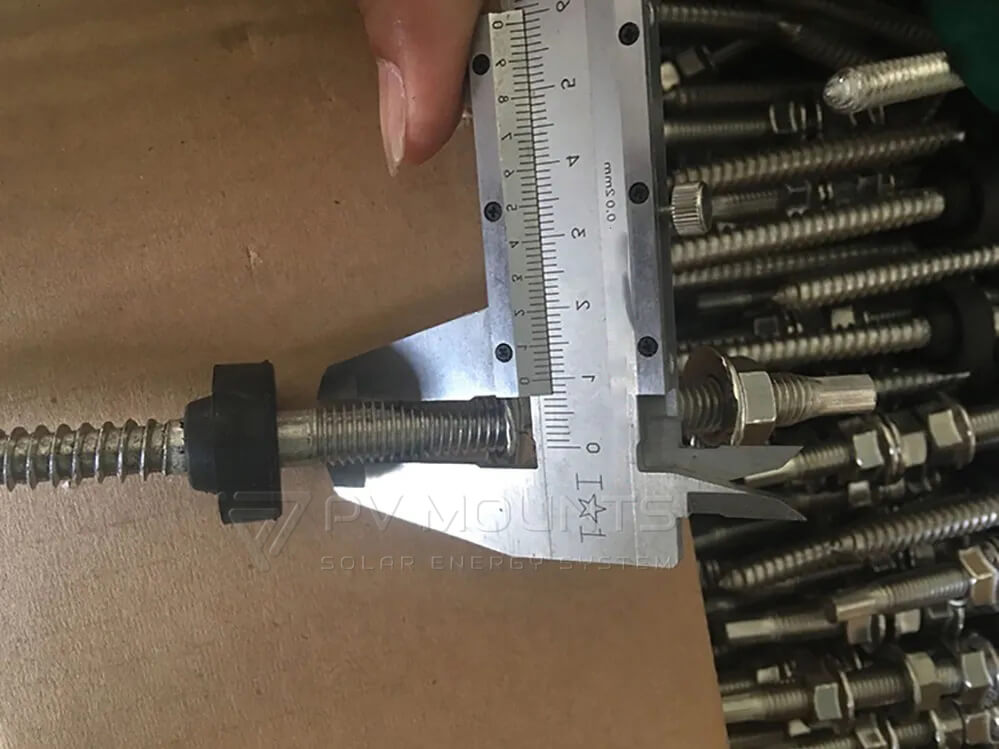
Inspecție
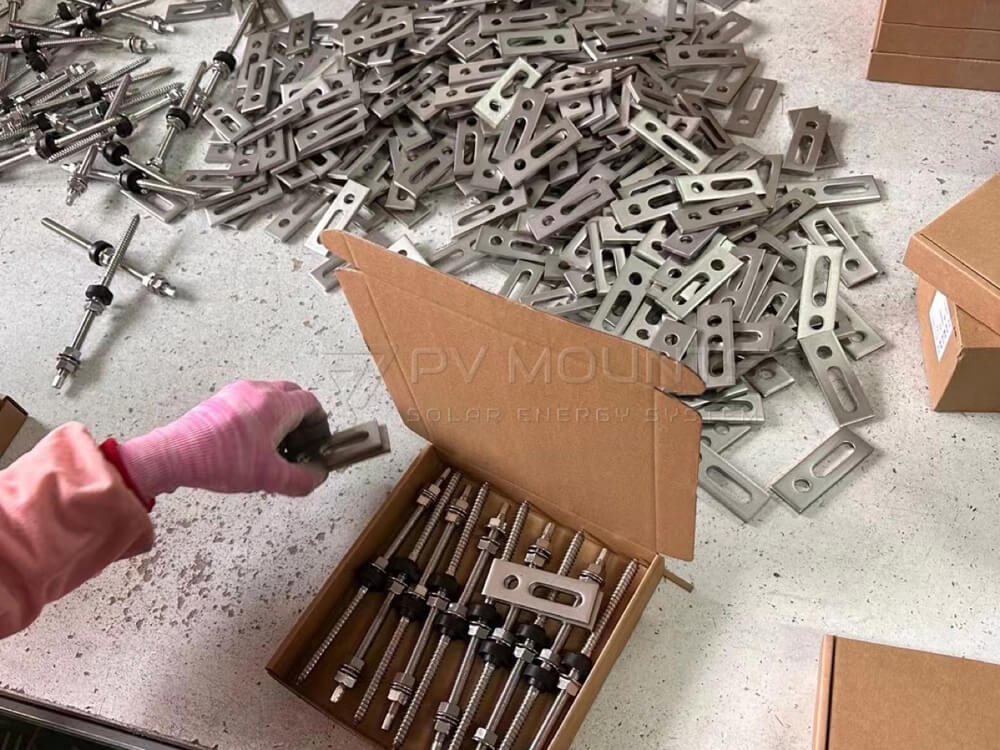
Garnitura șurubului de suspensie
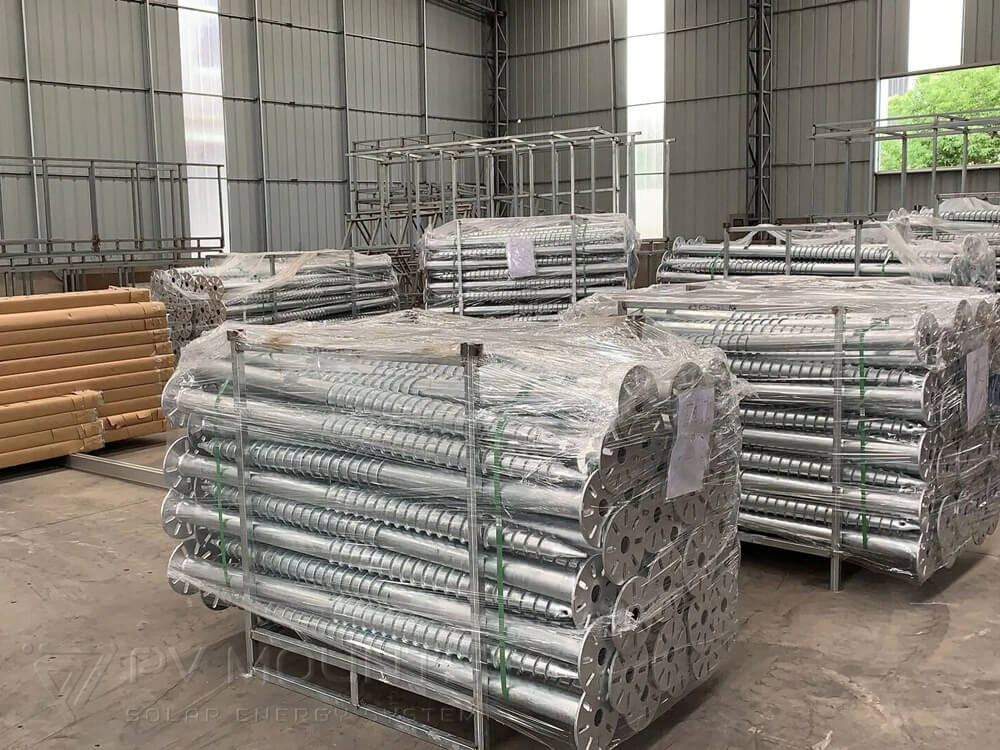
Ambalare Scew
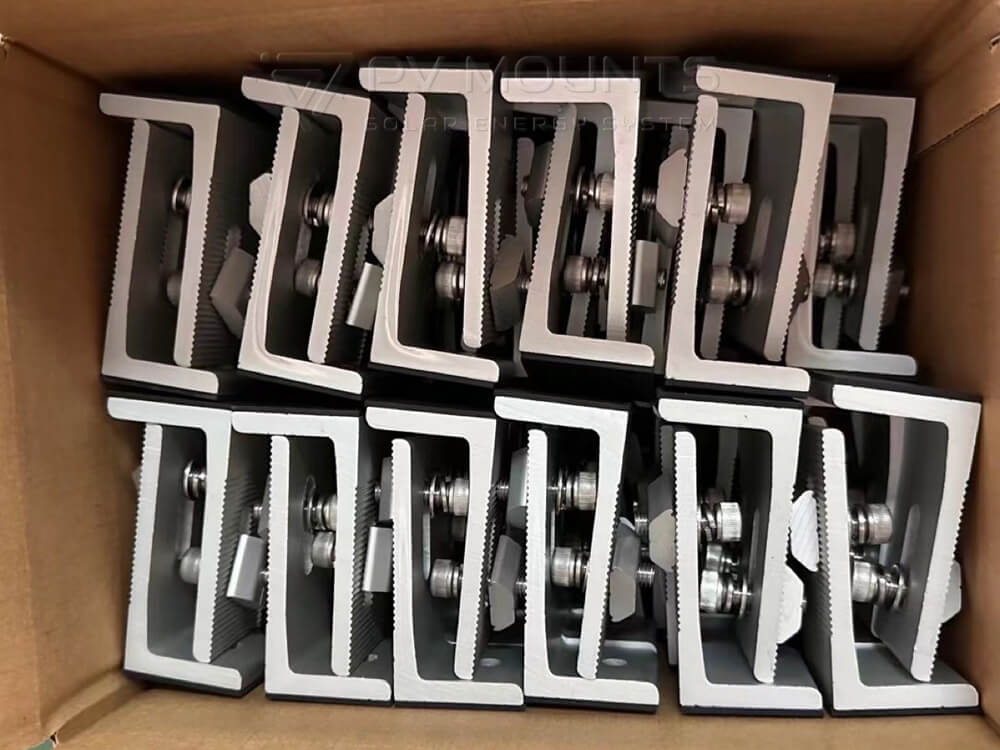
Ambalarea componentelor
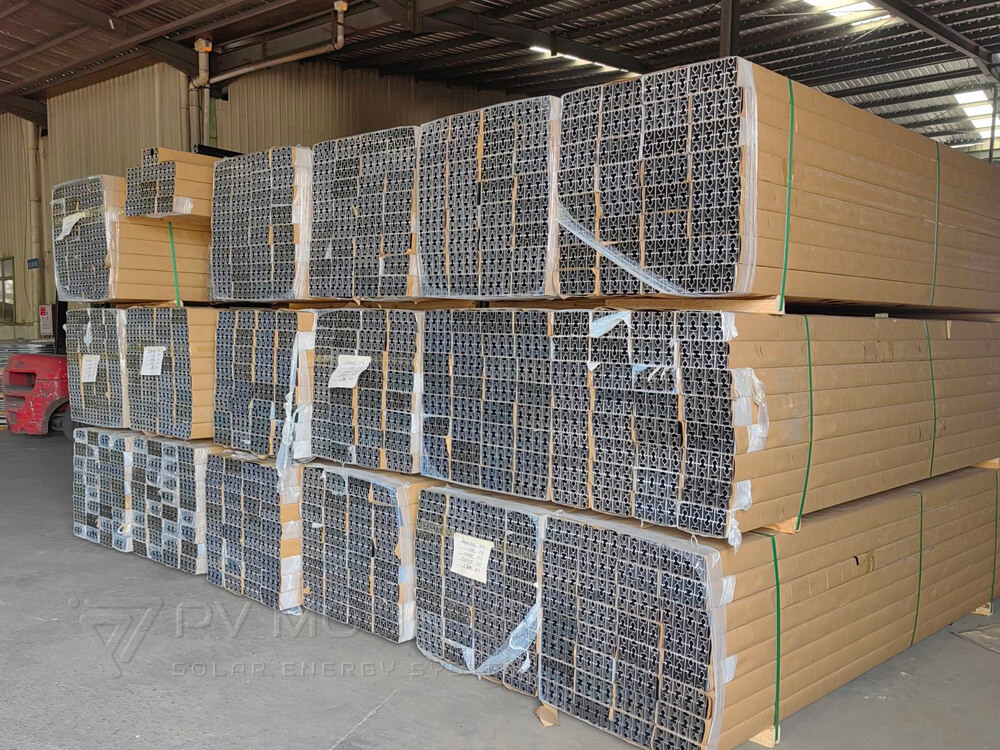
Ambalarea șinelor
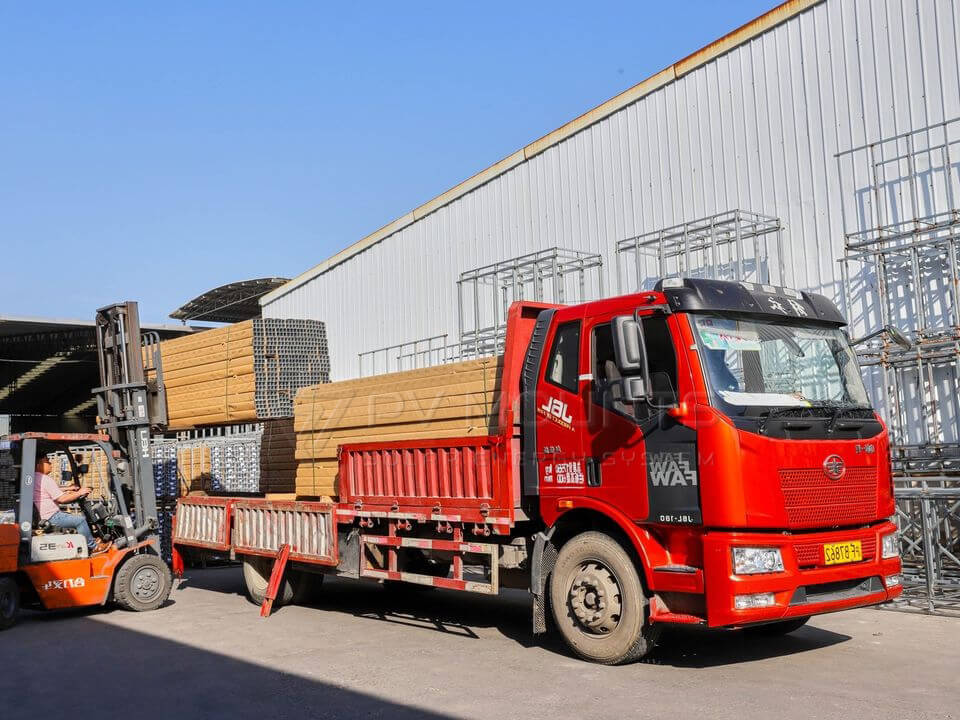
Încărcare și expediere
Proiecte solare de la monturi fotovoltaice
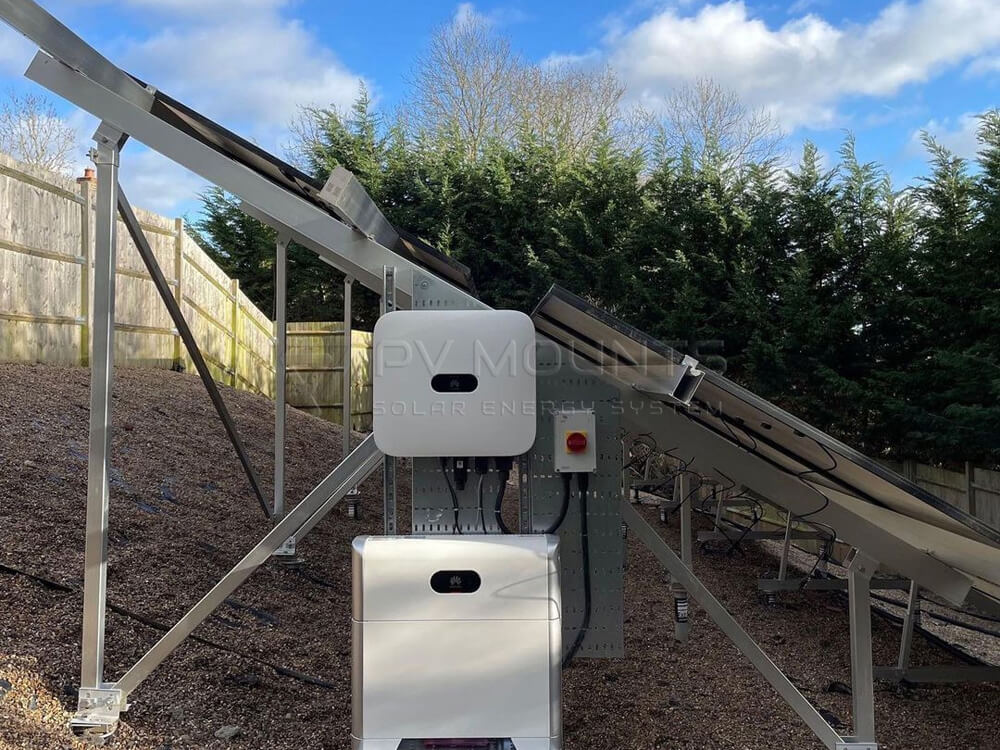
Asamblarea componentelor
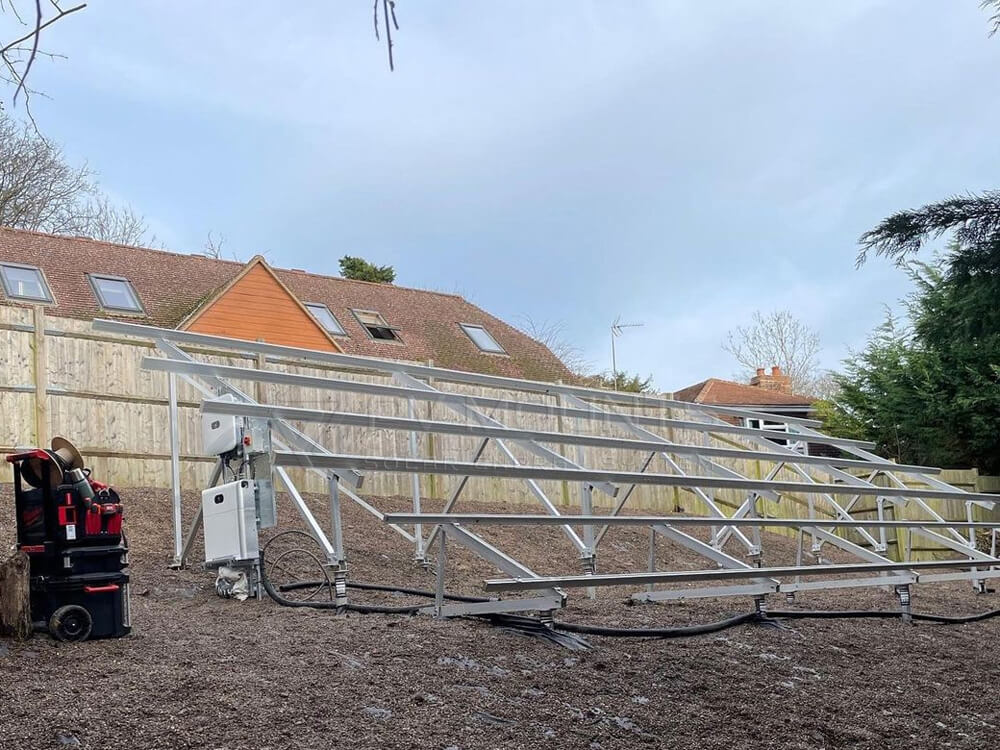
Structura clădirii

Instalarea panourilor solare
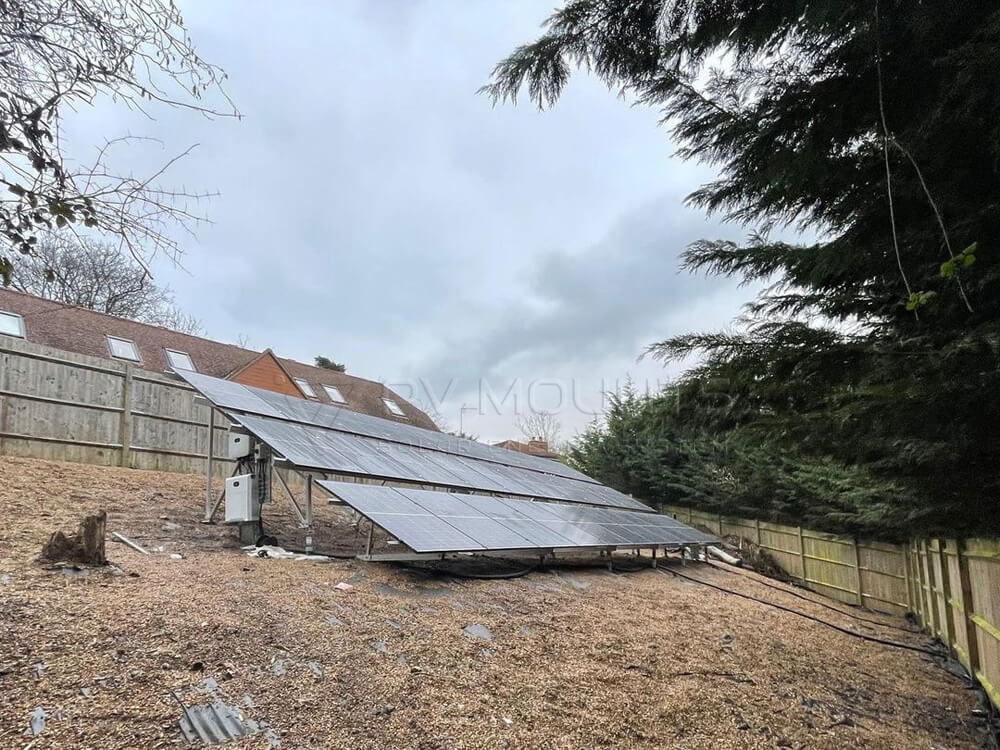
Vizualizare sistem întreg Groud Mount
Întrebări frecvente privind montarea la sol
R: Vă rugăm să furnizați aceste detalii cât mai curând posibil. Vă mulțumim.
| 1 | Dimensiunea panoului solar: | _________(Length*Width*Thickness) |
| 2 | Câte panouri solare intenționați să instalați pentru proiect? | ______pcs. |
| 3 | Dispunerea rețelei de panouri solare. Dacă nu este disponibil, vă rugăm să trimiteți dimensiunea (lungime și lățime) a locului de instalare. |
|
| 4 | Care este unghiul de înclinare opțial pentru panoul solar?: | _______degree. |
| 5 | Care este viteza vântului și sarcina de zăpadă? | ___m/s viteza vântului anit și ____KN/m2 sarcina de zăpadă. |
| 6 | Ce orientare de instalare pentru panoul solar? | _______ (orizontal sau vertical). |
| 7 | Latitudinea și longitudinea locului de instalare? | |
| 8 | De ce fundație aveți nevoie pentru viitorul sistem de montare la sol? | ______ ( șurub de pământ / beton / stâlp / stâlp ) |
| 9 | Cât de înaltă este cea mai mică înălțime de la panoul solar la sol? | _______mm |
R: Da. Eșantion gratuit sunt disponibile pentru verificarea calității la costul dvs. expres. Costul de livrare va fi rambursat după confirmarea comenzii.
R: Depinde de cantitatea și cerințele comenzii dvs. De obicei, în termen de 7 ~ 15 zile lucrătoare după primirea depozitului.
| Cantitate (bucăți) | 1 – 500 | 501 – 5000 | 5001 – 50000 | > 50000 |
| Timp de execuție (zile) | 7 | 10 | 15 | De negociat |
| Termen de plată | T/T | Comandă mică | 100% T/T în avans |
| EXW | |||
| DAP | |||
| FOB | 30% T / T în avans, 70% sold plătit înainte de expediere. | ||
| CNF | 30% T/T în avans, soldul plătit contra unei copii a B/L | ||
| CIF | |||
| Metoda de livrare | Prin expres, Cu avionul, Pe mare sau Cu trenul | ||
R: Oferim 10 ani garanție și lifespin până la 25 de ani.
Producător de montaj solar la sol
Ce este sistemul Solar Ground Mouting?
Sistemele de montare solară la sol sunt parte integrantă a instalațiilor solare de succes, oferind stabilitate și captare eficientă a energiei. Cu diferite tipuri disponibile, fiecare oferă beneficii unice: suporturile cu înclinare fixă sunt rentabile, în timp ce suporturile cu înclinare sezonieră optimizează producția anuală de energie. Sistemele de urmărire cu o singură axă îmbunătățesc expunerea la soare, iar sistemele de urmărire cu două axe oferă o precizie de urmărire supremă.
Alegerea unui sistem de montare la sol este ghidată de factori precum spațiul, bugetul, nevoile proiectului și normele locale. Aceste sisteme utilizează în mod eficient spațiul de la sol, ceea ce le face potrivite pentru proiecte la scară largă și pentru locuințe unde montarea pe acoperiș nu este fezabilă. Prin securizarea panourilor solare, acestea împing mai departe adoptarea pe scară mai largă a energiei regenerabile.
Cum funcționează sistemul Ground Mouting?
Sistemele de montare pe sol oferă un cadru pentru instalarea panourilor solare pe sol, permițându-le să fie poziționate la un unghi și o orientare optime pentru captarea luminii solare. Iată o prezentare generală a modului în care funcționează un sistem de montare la sol:
- Pregătirea terenului: Înainte de instalarea sistemului de montare la sol, locul de instalare este pregătit prin îndepărtarea oricăror obstacole, nivelarea solului și asigurarea unui drenaj adecvat.
- Instalarea fundației: Sunt instalate fundațiile sistemului, care pot fi sub formă de tălpi de beton, șuruburi pentru sol sau balasturi. Aceste fundații asigură stabilitatea și susținerea structurii de montare.
- Instalarea rafturilor: Sistemul de rafturi este apoi asamblat și atașat la fundații. Structura de rafturi constă, de obicei, din componente din aluminiu sau oțel care oferă cadrul pentru montarea panourilor solare.
- Fixarea panoului: Panourile solare sunt fixate în siguranță pe structura de rafturi cu ajutorul unor cleme sau suporturi de montare. Panourile sunt poziționate la unghiul de înclinare dorit, adesea optimizat în funcție de latitudinea locului de instalare.
- Cablare și conexiuni electrice: Cablajul este instalat pentru a conecta panourile solare în configurații în serie sau în paralel, în funcție de proiectarea sistemului. Conexiunile electrice sunt realizate pentru a asigura fluxul de energie electrică de la panouri la invertor și la rețeaua electrică.
- Împământare și măsuri de siguranță: O împământare corespunzătoare este esențială pentru siguranță și pentru protejarea sistemului împotriva defecțiunilor electrice. Conductoarele și echipamentele de împământare sunt instalate pentru a respecta cerințele codului electric.
- Întreținere și monitorizare: Întreținerea periodică, cum ar fi curățarea panourilor și inspectarea sistemului, este necesară pentru a asigura o performanță optimă. De asemenea, pot fi integrate sisteme de monitorizare pentru a urmări producția de energie și a detecta orice probleme sau defecțiuni.
Domenii de aplicare ale sistemului de montare la sol
- Ferme solare la scară largă: Sistemele de montare la sol sunt utilizate pe scară largă în fermele solare de mari dimensiuni sau în parcurile solare. Aceste zone necesită structuri eficiente de montare la sol pentru a susține un număr mare de panouri solare.
- Instalații comerciale și industriale: Acestea sunt utilizate pentru a instala panouri solare pentru a satisface nevoile energetice ale fabricilor, depozitelor, clădirilor de birouri, centrelor comerciale și altor proprietăți comerciale.
- Zone agricole și rurale: câmpuri agricole sau zone rurale unde există terenuri disponibile. Fermierii își pot utiliza terenurile neutilizate pentru instalații solare, generând energie regenerabilă și furnizând fluxuri de venituri suplimentare.
- Proiecte solare comunitare: Sistemele cu montaj la sol sunt aplicate în proiectele solare comunitare care vizează să ofere acces la energie solară mai multor gospodării sau unei comunități. Aceste sisteme permit instalarea și distribuția centralizată a energiei solare.
- Instalații rezidențiale: uneori, sistemele montate la sol sunt utilizate pentru aplicații rezidențiale, în special atunci când există probleme de umbrire sau spațiu insuficient pe acoperiș. Proprietățile mai mari pot opta pentru sisteme solare montate la sol pentru a maximiza producția de energie.
Pentru a afla mai multe despre aplicație, puteți găsi articolul nostru de mai jos:
Exploatarea soarelui: Aplicarea sistemelor de montare solară la sol
Este nevoie de autorizație pentru instalațiile de sisteme montate la sol?
Da, de obicei este necesară o autorizație pentru instalarea unui sistem de montare la sol pentru panouri solare.
- Autorizații de construcție sunt necesare pentru a asigura siguranța și conformitatea cu codurile locale de construcție.
- Reglementările de zonare dictează unde instalațiile solare sunt permise și pot avea cerințe specifice.
- Evaluarea impactului asupra mediului ar putea fi necesare pentru proiecte la scară mai mare.
- Acorduri de interconectare a utilităților poate fi necesară pentru sistemele conectate la rețea. Asociațiile de proprietari pot avea propriul lor proces de aprobare.
Cercetarea reglementărilor locale, consultarea autorităților și colaborarea cu profesioniști pot ajuta la parcurgerea eficientă a procesului de autorizare.


